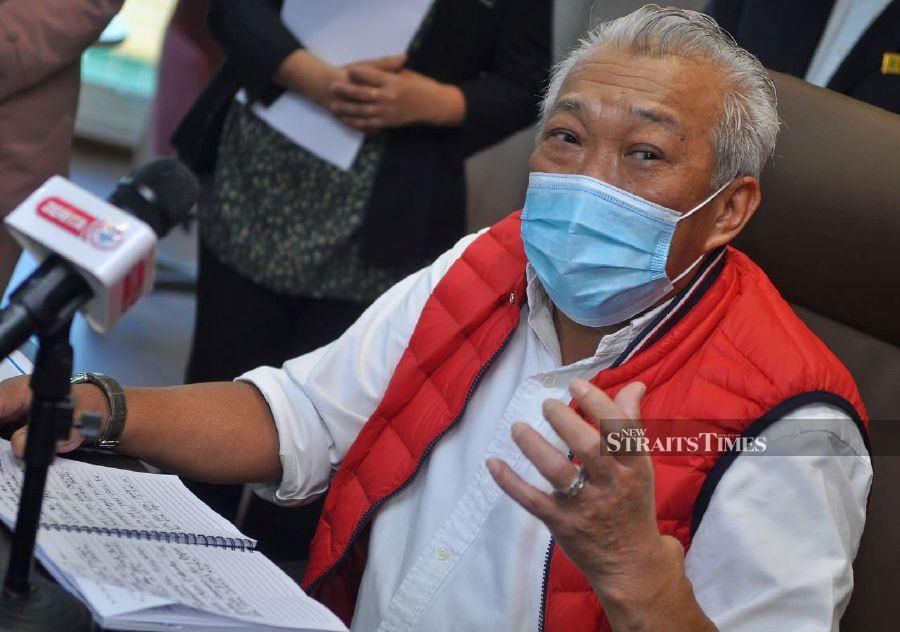
KOTA KINABALU: Up to 22 water treatment plants (LRA) in Sabah regularly experience problems supplying stable, clean water to the public due to river pollution that affects their operations.
Deputy Chief Minister and state Works Minister Datuk Seri Bung Moktar Radin said the plants are often closed, even during the rainy season, as river water turbidity gets too high.
This has caused many districts throughout the state to face water supply problems. It also affects the development of the industrial sector because of insufficient or disruptive supply.
"Most of the water plants are over 20 years old. When the plants were first constructed, the river was clean and there was no pollution. However, that has changed due to development and opening of land as well as forest areas.
"Such a situation has caused the plants to be unable to operate effectively and are often closed, causing water supply disruption to consumers," he said in a press conference on the water issue in Sabah here, today.
Also present was state Water Department director Edward Lingkapo.
The troubled water plants are located in Tuaran, Kinabatangan, Tawau, Kalabakan, Kunak, Keningau, Tenom, Nabawan, Sook, Tulid, Beaufort, Sipitang, and Kota Belud.
Overall, Bung noted there are 84 LRA currently in operation throughout the state and 22 plants have been identified as having the most problems.
As such, he said Sabah is facing up to 45 per cent of water supply reduction state-wide, 30 per cent of which is in Kota Kinabalu.
He said several approaches need to be taken, including constructing Off River Storage and establishing a Sabah Water Commission for privatised water supply services.
"The ORS method is used in several LRA in Tuaran, Sandakan, and Kudat. However, not all places can apply ORS as we need to look at other methods as well.
"For long-term solutions, the setting up of a water commission in Sabah is important to fully resolve the problems. The state water department will complete its working paper to be tabled in the state Cabinet soon," said Bung.
He noted Phase 3 of the Kota Kinabalu Water Supply project, which is known as the Papar Dam, is also using the ORS method.
The project is in the final phase of water supply planning for Kota Kinabalu and its surrounding districts with an operating lifespan that can last up to 100 years.
"This project has been planned for a long time and we see it as the most suitable to be implemented in Ulu Kaiduan because its durability level is longer, which is over 80 years compared to being built in the downstream area of Sungai Papar," said Bung.
On residents affected by the project implementation, he said so far, only 30 families have been identified and the government has suitable land to relocate them to. - NST



No comments:
Post a Comment
Note: Only a member of this blog may post a comment.